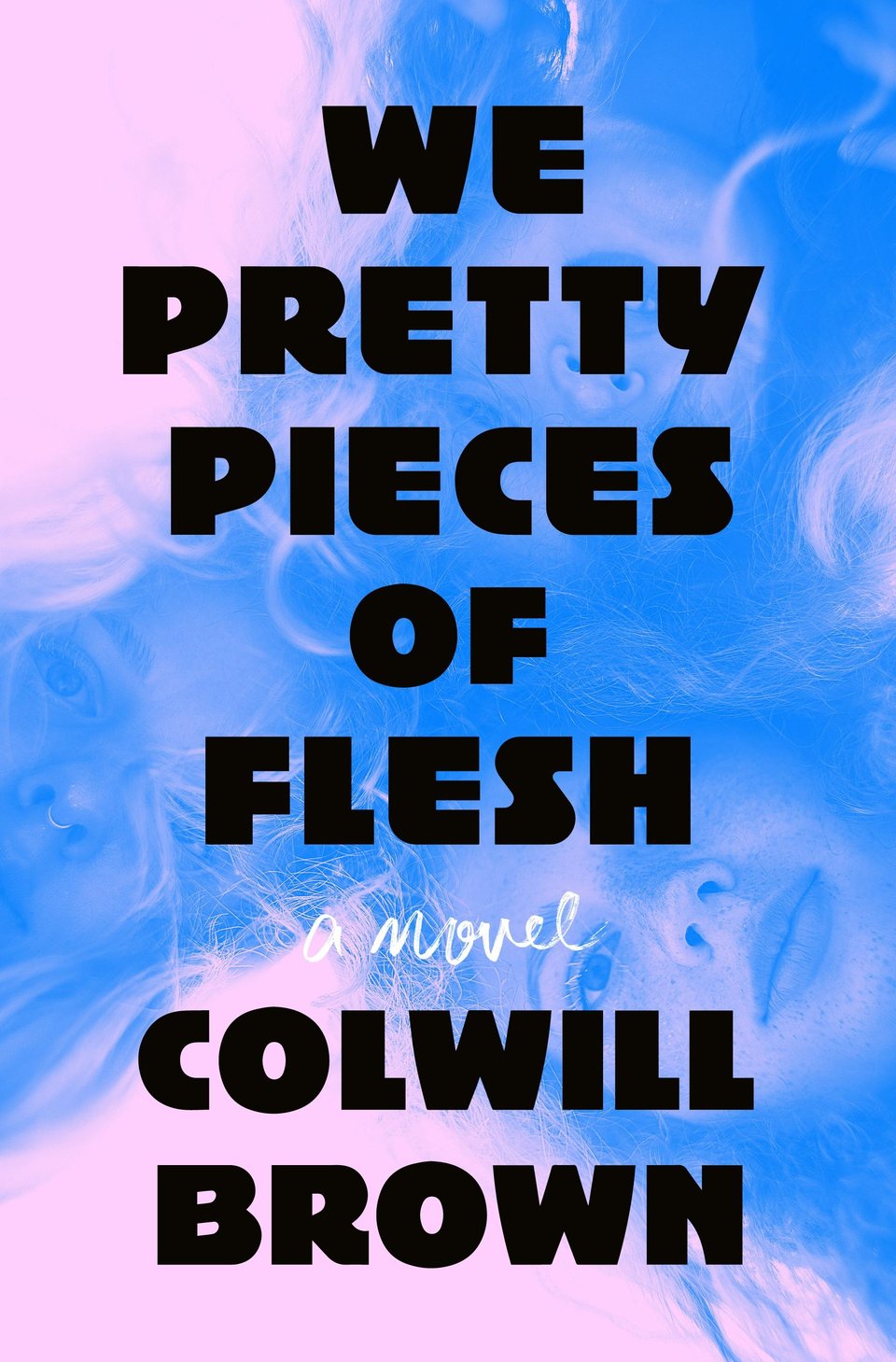Disability Books #1: "Nobody's Empire"
A discussion of ME/CFS in Stuart Murdoch's new novel "Nobody's Empire."
This newsletter is free to the public, and appears infrequently due to my chronic illnesses. If you would like to support me, you can subscribe to my podcast's Patreon here. Although I'm on leave, this still helps. Otherwise, feel free to send me a couple bucks through Ko-fi.
Before I get into the main subject of this email, I want to share links to two interviews I did that ran this month: with Adam Ross, at Electric Lit, about his novel Playworld, and with Susan Barker, at CrimeReads, about her novel Old Soul.
This year, one of my goals is to write a series of newsletters about books that explore, in one form or another, disability. “Disability” in this case might mean physical disability, chronic illness, mental health, or broader health topics (which may not specifically explore disability but have interesting [or troubling!] things to say about the body, public health, etc.).
I’d like to send these newsletters out once a month, though it’s impossible for me to promise this. We’ll see how it goes. I have already read a lot of books coming out this year that touch on disability—most of which are exciting and thought-provoking… and some of which made me angry. I’ll touch on all this in the months to come.

Hopefully, these emails will cover a wide variety of topics, but I’ll start off this series by considering a new novel, Nobody’s Empire by Stuart Murdoch, that explores the experience of living with ME/CFS (myalgic encephalomyelitis, or chronic fatigue syndrome), a condition that I have myself. Nobody’s Empire has gotten me thinking thinking about how ME/CFS is depicted in fiction, and the exhausting process of evaluating works of art that depict rarely told stories or groups rarely written about in fiction. Normally, when I read a book, I don’t have a vested interest in its success, but with books about disability (and ME/CFS and long covid in particular), I find myself wanting more out of them than they can possibly deliver.
The most annoying defense I’ve seen mounted for Netflix’s execrable Emilia Pérez invokes this feeling: nobody should criticize this film, some claim, simply because it features a trans actress and character, due to the increasingly terrifying attacks on trans people in America right now (in particular, from the current presidential administration). As many trans critics (and others) have pointed out, though, the film is actually transphobic (not to mention racist). Do we owe it to mediocre, if not objectively bad, pieces of art to defend them merely on the basis of representation? I would certainly say no, but some part of me understands this impulse, even though I am also skeptical about art’s ability to effect social change.
But though books not be able to do much, they are better than nothing, I suppose—especially in a culture where so few people (including doctors) know anything about ME/CFS, to return to the specific example of Nobody’s Empire. As with long covid (which has a high rate of comorbidity with ME/CFS), those with ME/CFS have typically been ignored and dismissed—but in many cases for decades rather than years in the single digits.
Stuart Murdoch, who many will know from his band Belle and Sebastian (the title of his novel comes from a Belle and Sebastian song), was diagnosed with ME/CFS (often referred to simply as ME in the UK) in the late 1980s, when he was in his early twenties. So is Stephen, the thinly fictionalized narrator of Nobody’s Empire. Stephen’s doctors react to his sudden collapse so skeptically that they send him to a psychiatric ward (a fate that still befalls people with ME and LC, as Time Magazine recently reported).
Ironically, Stephen feels that in some ways, being institutionalized did save his life: he was wasting away, and the doctors and nurses in the psych ward insist that he eat. But as he reflects, “I knew deep down though that the dream of a ‘full recovery’ was just a dream. … There was no understanding there, no attempt to meet me in the middle. At least [the doctor] didn’t drug me up.” I was affected by this description, and by Stephen’s subsequent observation that “Unexplained chronic illness is like the doctor equivalent of a detective’s cold case. It usually ends up in the bottom of the filing cabinet.”
Unfortunately, as I continued reading, I had to admit that the book was not very… good. Nobody’s Empire is a novel written by a musician, and writing songs and writing novels are two distinct skill sets. I feel confident in saying that if Murdoch were not already and established public figure, this book would not have been published. Unlike many other “celebrities” (does an indie rock personality count as a celebrity?) who hire other people to ghostwrite novels for them—a practice I despise—Murdoch undoubtedly wrote this book himself. But it is overlong and meandering, full of excess detail about the small trials and tribulations of Stephen’s life, most of which I suspect draw on real memories of this period in Murdoch’s. Stephen tells us a lot, in great detail, about bands he likes, sometimes even listing off playlists, for example. It makes sense that this is the kind of information Murdoch, a professional musician, would care about; to a reader, though, it is stultifying.
More troubling is Murdoch’s depiction of ME/CFS. Murdoch’s credentials here are also not in doubt: in 2022, protesting with the group ME Action outside the Scottish Parliament, he told The Standard, “The fact is people with ME, for some mysterious reason are not believed. … In my early days when I was very ill with ME I felt like a second-hand citizen, almost like a non-person, invisible.” And there are some positive elements to his depiction, including Stephen’s account of his initial collapse, which I highlighted above. Stephen and his friend Richard both have ME/CFS, as does Stephen’s friend Carrie; together, they form an unofficial support group. And Stephen also visits doctors and quacks who either treat him skeptically or promise miracle cures, experiences that will no doubt be familiar to many readers with the condition. Stephen does seem committed to finding a cure, including at one point suggesting that exercise is the answer—in fact, exercise is dangerous for people with ME/CFS—but other characters usually step in to question his assumptions.
But Murdoch’s description of the physical experience of the condition is bizarrely unspecific given that he lives with it himself (although he recovered significantly after his initial diagnosis, he describes “taking a big nose dive” in 2014). Stephen often mentions being tired, being limited, or needing to rest, but he actually lives a very active life: attending university classes (for a time), attending church services, traveling to California with his friend Richard, forming a band there and performing.
The problem is not exactly that Stephen is able to do these things: ME/CFS is a spectrum disease, and some people are more able to function day-to-day than others. A person with the condition would expect, however, to suffer from post-exertional malaise (PEM) after expending too much energy, whatever “too much” means to the individual patient. According to Science Norway, PEM “involves a worsening of symptoms after physical, mental, or emotional exertion that would not have caused problems before the illness,” “can be triggered by cognitive, physical, emotional, or social activity,” and “can cause a wide range of symptoms” including “extreme fatigue, feeling like you have the flu, body aches, sleep disturbances, and cognitive problems like brain fog.” Usually, these symptoms kick in a day or two after the activity in question.
Anyone with ME/CFS—and I speak from experience here—will be all too familiar with this pattern of, essentially, boom and bust, of optimistically over-exerting yourself, or thinking you are capable of a certain level of activity, only to be punished after the fact. The fact that Murdoch does not convey this pattern with any level of specificity or consistency in Nobody’s Empire, and that he is not able to describe the punishing experience of PEM, is clearly not due to a lack of understanding of the illness. Instead, I think he is just not a good enough writer to achieve the task he has set himself.
Does this make Nobody’s Empire a net positive, a net negative, or a net neutral in the quest to educate people who do not have ME/CFS about the illness? Is simply discussing it enough, or does Murdoch’s failure to dig into the reality of the illness mean that the book is not enough? And is it reasonable or fair to evaluate this book in this way at all? It is probably more fair, and more accurate, to say that this novel is overlong, well-intentioned, but not very well-written, and leave it at that. But…
Again, I feel tired.
*

As a coda to the above, I want to mention another novel written by a writer with ME/CFS, coming out this spring, which vastly surpasses Murdoch’s attempts to depict the illness. We Pretty Pieces of Flesh, by Colwill Brown, is not out until March, so I won’t describe it in detail here, but to put it on your radars. It also isn’t a book primarily about illness, instead charting the friendship of three girls, later women, from age eleven through adulthood in Doncaster, England. Written in dialect, We Pretty Pieces of Flesh is brilliant on the tensions between girls in adolescence, especially when exacerbated by a working class environment, where these relationships can become hugely stratified when one friend, for instance, is able to pursue further education and another is not. Brown’s other great subject is how men treat women (and boys treat girls): with cruelty and disregard from a young age, especially to show off to their friends.
But one of the three central female characters develops ME/CFS as an adult, in one of the final sections of the novel. Obviously drawing from her own experience (her diagnosis is mentioned in her author bio), Brown vividly portrays this character’s bewilderment at her sudden inability to function, her stubborn attempts to overcome her fatigue, and the crushing exhaustion, pain, and illness that follow. There isn’t exactly a huge range of ME/CFS literature to choose from, but I think this is the best depiction of the illness I’ve read in fiction.
If you have ME/CFS, or if you want to understand the condition more fully, make a point to preorder or request We Pretty Pieces of Flesh from your library.